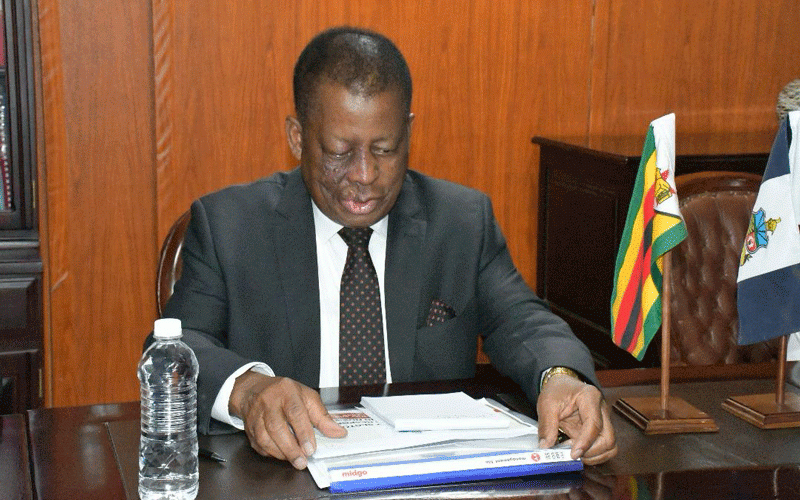
BY JAIROS SAUNYAMA
Prince Kudakwashe Musarurwa’s journey might have never earned him the pleasure of the royal title “Prince” in the trenches of the local music industry apart from his collaboration with Pah Chihera. His music, despite being good, was a pleasure to the hunters of local music. The youthful musician’s death last week on Saturday was almost a non-event, the crooner breathed his last far from the glitz of showbiz in Chinhoyi, succumbing to lung cancer.
One only hopes that, at least by Christian beliefs that the dearly departed will, like his name, enjoy Princehood in the afterlife.
Journalism is one of the most stressing careers in the world, especially if one starts off as an arts reporter. This beat brings you closer to that world such that one builds a relationship with artistes in the various disciplines.
I first met Prince Musarurwa in 2012. He had released his album titled Kurarama the previous year, which had flopped. The album was recorded at Artisan Studions and Prince blamed poor marketing for the slow take-off.
As we sat for the interview, he spoke with so much vigour as somebody who had already made it in this music industry that is full of surprises. He thought I knew about his late grandfather August Musarurwa, yes, he was a role model.
“I am a grandson of the great Skokiaan composer and saxophone player August Musarurwa and I am also the heir to his throne,” he said, oozing with confidence.
As a young journalist, I was happy to be associated with siblings of legends. Though he was hardly known by anybody during that time, Prince had the determination of an athlete.
- Chamisa under fire over US$120K donation
- Mavhunga puts DeMbare into Chibuku quarterfinals
- Pension funds bet on Cabora Bassa oilfields
- Councils defy govt fire tender directive
Keep Reading
After writing an article on his dreams to become one of the most sought-after Afro-jazz musicians in the country, the young crooner was elated to the extent that he informed his relatives that he was in one of the daily publications that day.
His sister, Sarah, called and thanked me for being one of the few people around Prince, who were supporting his idea of taking over from his grandfather. I told Sarah that I was just doing my job.
We met often with Prince usually at the Africa Unity Square in Harare.
He dropped the album Gara Muberevere and it did well among those who loved Afro-jazz. His voice was too good to ignore to those who listened to either Radio Zimbabwe or National FM. The young man began to rebrand himself, thanks to Sarah who assisted him financially.
By then Sarah was working for a local non-governmental organisation. Her assistance saw Prince adopting his trademark Africa attires, the skimpy hairstyle as well as the securing of the mbira instrument. Moreover, Prince did some photoshoots, posting the pictures on various social media platforms, and it worked.
Prince enrolled at the College of Music — a sign of how he wanted things to be. In 2012, tracks like MaMoyo and title track Gara Muberevere became popular hits, thus making a name for himself, especially after recording the videos.
The following year he dropped another gem of an album titled Gogodera.
Then came the hit Runonzi Rudo, a duet he did with his niece Pah Chihera, whose real name is Pamhidzai Mbirimi.
The song became a national anthem among both the young and the old. The video was a marvel to watch such that it catapulted the pair to glory.
But it was Pah Chihera who gained more momentum as compared to Prince. He knew about it, but humbly accepted that the success of his niece was also his own.
To arts critics, Prince played a crucial role on that hit track, but credit was given more to Pah Chihera. The combination was likened to that of Betty Makaya and the late Nyika Mataure (Jamal) who excelled with the hit song Kurwizi. Both teams sang for love and all those who believed in it with perfection.
I asked Prince about how he felt about it as we sat at the heart of Africa Unity Square.
“When I did the song Runonzi Rudo with Pah Chihera, I did not know that it would become a hit like this. She asked me to contribute and I did my best. I am happy that it came out like this. I will continue contributing to her songs,” he said.
True to his word the duo began working on another duet while Prince started securing deals in and outside Zimbabwe. Locally, Prince attracted the attention of songstress Diana Samkange such that the two held shows during Valentine’s Day events. Regionally, Prince charmed Naledi Kaisara, affectionately known as Slizer, and they had a song together.
During one of his trips to the UK, Prince sent a message to me via Facebook saying he was elated to have achieved his dream, thus taking his acts to Europe and the United States. He exhibited his talent such that he was more appreciated in Europe than back home.
But fate would have none of it. The devourer came in the form of cancer. He was a fighter, but since after that amazing singing at a Methodist Church gathering in the United Kingdom two years ago, it was a different story.
He fought lung cancer, but death remained resolute.
The young musician lost the battle on February 15 plunging the music industry and nation at large into mourning.
Prince was a grandson of yesteryear local great musician August Musarurwa of Skokiaan fame.
In the 1950s aspiring young musicians from the urban areas or townships would gather at beer gardens and community centres to learn to play the saxophone, the banjo or the pennywhistle, which would eventually lead to the formation of trios with the three instrumentalists playing or singing to the tsava-tsava rhythm.
These bands would then team up with acapella groups or choirs who provided vocal music and together the first Zimbabwean pop bands came into being.
It was during this time that August Musarurwa hogged the limelight and released the hit song Skokiaan, which became an international hit after it was recopied by The Shadows (on their visit to Zimbabwe with Cliff Richard) and later by Louis Armstrong.
Musarurwa died in 1968, but today his songs are still being played everywhere.
His grandson Prince has breathed his last and perhaps a lid has been put on the Musarurwa music legacy.
Rest in peace, Prince, Go well, Sinyoro. Fambai Zvakanaka, Nyamatsatse. You sang for love and you departed during the very same time your followers were celebrating Valentine’s Day. I will never tell Sarah that you loved your cigarettes.











